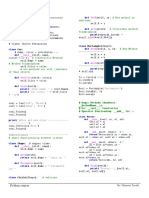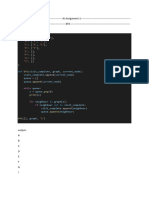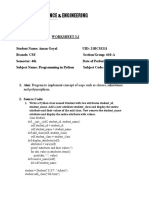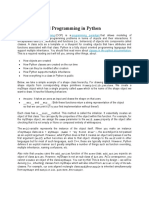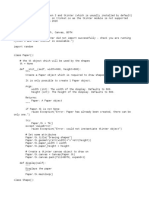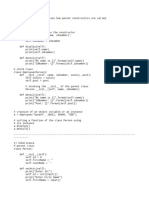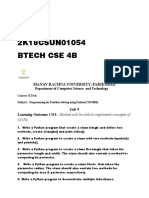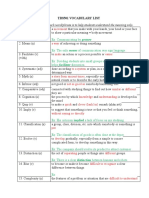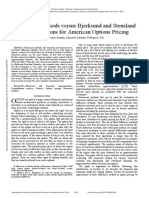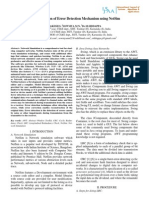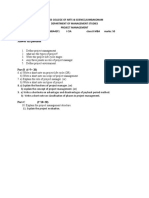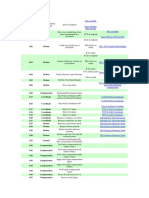0% found this document useful (0 votes)
307 views11 pages0x06 Python Classes
This document outlines the progression of a Python class project that defines a Square class. It starts with defining basic Square class in 0-square.py and builds upon it in subsequent files by adding initialization, validation, getter/setter properties for size, printing methods, optional position attribute, and comparison methods. The goal is to practice object-oriented programming concepts like encapsulation, abstraction and information hiding using classes and objects.
Uploaded by
Oghosa OsahenrhumwenCopyright
© © All Rights Reserved
We take content rights seriously. If you suspect this is your content, claim it here.
Available Formats
Download as DOCX, PDF, TXT or read online on Scribd
0% found this document useful (0 votes)
307 views11 pages0x06 Python Classes
This document outlines the progression of a Python class project that defines a Square class. It starts with defining basic Square class in 0-square.py and builds upon it in subsequent files by adding initialization, validation, getter/setter properties for size, printing methods, optional position attribute, and comparison methods. The goal is to practice object-oriented programming concepts like encapsulation, abstraction and information hiding using classes and objects.
Uploaded by
Oghosa OsahenrhumwenCopyright
© © All Rights Reserved
We take content rights seriously. If you suspect this is your content, claim it here.
Available Formats
Download as DOCX, PDF, TXT or read online on Scribd
/ 11


